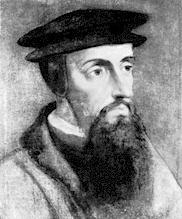1594 - 1648 Person Name: Matthäus Appelles von Löwenstern, 1594-1648 Scripture: Psalm 29:11 Author of "Lord of our life, and God of our salvation" in Complete Anglican Hymns Old and New Löwenstern, Matthäus Apelles von, was born April 20, 1594, at Neustadt, in the principality of Oppeln, Silesia, where his father was a saddler. He early distinguished himself by his musical abilities, was appointed in 1625, by Duke Heinrich Wenzel of Münsterberg, as his music director and treasurer at Bernstadt: in 1626, director of the princely school at Bernstadt; and in 1631 Rath and Secretary and also Director of finance. Thereafter he entered the service of the Emperors Ferdinand II. (d. 1637), and Ferdinand III. as Rath, and was ennobled by the latter. Fi¬nally he became Staatsrath at Oels to Duke Carl Friedrich of Münsterberg, and died at Breslau, April 11, 1648 (Koch, iii. 57-60 ; Allgemeine Deutsche Biog. xix. 318, &c).
Lowenstern's hymns, thirty in all, are of very varied worth, many being written in imitation of antique verse forms, and on the mottoes of the princes under whom he had served. In the original editions they were accompanied with melodies by himself. When or where they were first published (cir. 1644) is not clear. They were bound up with the Breslau Kirchen und Haus-Music, 1644, and there bear the title:
Symbola oder Gedenck-Sprüche IIIirer FFFürstl. GGGn. Hn. Carl Friedrikis Hertzogs zu Münsterberg .... dann auch anderer Erlauchter Fiirstlicher Personen. Zusanibt noch etlichen absondtrs beygesetzten Geistlichen Oden. Gestellet durch M. A. v. L.
Three of these hymns have been translated:—
i. Christe, du Beistand deiner Kreuzgemeine. [In time of War.] 164-4, No. xvii., in 4 stanzas of 4 lines, entitled "Sapphic Ode. For spiritual and temporal peace." Included in many later collections, and as No. 215 in the Unverfälschter Liedersegen, 1851. It was a favourite hymn of Niebuhr, and also of Bunsen, who included it in his Versuch , 1833, and concluded with it the preface to his Bibelwerk. The translations in common use are:—
1. Lord of our life, and God of our Salvation. Contributed by Philip Pusey to A. R. Reinagle's Psalm and Hymn Tunes, Oxford, 1840, p. 132, in 5 stanzas. It is rather founded on the German than a translation, stanzas i., ii. on stanzas i.; iii.-v. on ii.-iv. The tune to which it was set was marked by Bunsen as an "old Latin melody," and so the Pusey hymn has sometimes been erroneously called a tr. from a Latin hymn of the 8th century. From Reinagle it passed into the Salisbury Hymn Book, 1857, and has been repeated in Hymns Ancient & Modern, Sarum Hymnal, Hymnary, Church Hymns; and in America in the Evangelical Hymnal, N. Y., 1880, Laudes Domini, 1884, and others.
2. Blest aid of Thine afflicted congregation. In full, by A. T. Russell, as No. 99 in the Dalston Hospital Hymn Book, 1848.
3. Christ, Thou the champion of the band who own. A good and full translation by Miss Winkworth in her Lyra Germanica, 1st Ser., 855, p. 105; repeated in Schaff's Christ in Song, 1869, and the Ohio Lutheran Hymnal, 1880. In the 2nd ed. of her Lyra Germanica, 1856, it begins, "Christ, Thou the champion of that war-worn host."
4. 0 Christ, the leader of that war-worn host. A good and full tr., based on Miss Winkworth, by W. Mercer in his Church Psalm & Hymn Book, 1857, No. 279 (Oxford ed., No. 391), and repeated in the American Sabbath Hymn Book, 1858. From the version of 1858 Mr. Windle seems to have altered the form in his Collection, No. 268.
ii. Nun preiset alle. [Missions.] 1644, No. xii., in 5 st. of 6 1., entitled " Alcaic Ode." A fine hymn of Praise. In the Unverfälschter Liedersegen 1851, No. 717. The translation in common use is:-—
Now let us loudly. In full, by Miss Winkworth in her Chorale Book for England , 1863, No. 177, set to Lowenstern's original melody.
iii. Wenn ich in Angst und Noth. [Cross and Consolation .] 1644, No. viii., in 7 stanzas of 7 lines, entitled "The 121st Psalm." It is a fine version as a hymn of consolation in times of trouble. In the Berlin Geistlicher Lieder Schatz, ed. 1863, No. 984. The translations in common use are:—
1. When in distress and woe I lift. A good translation, omitting stanza v., by H. J. Buckoll, in his Hymns from German, 1842, p. 19, repeated in the Dalston Hospital Hymn Book 1848.
2. When anguish'd and perplexed. A good translation, omitting stanzas v., vi., by Miss Winkworth in her Lyra Germanica, 2nd Ser., 1858, p. 70. In her Chorale Book for England, 1863, No. 142, altered and set to the original melody by Lowenstern. [Rev. James Mearns, M.A.]
--John Julian, Dictionary of Hymnology (1907)
Matthäus Apelles von Löwenstern




